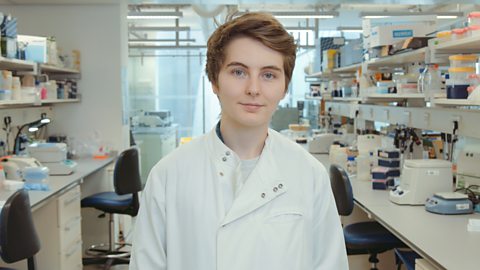Meet Hannah. She's 25 and works as a biomedical scientist in the virology department of a hospital. Part of our Bitesize world of work series.
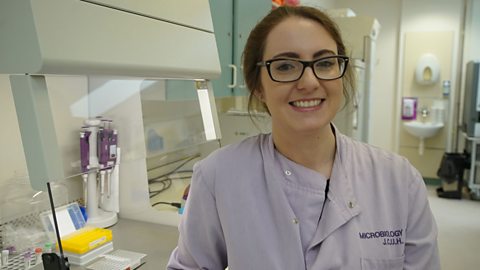
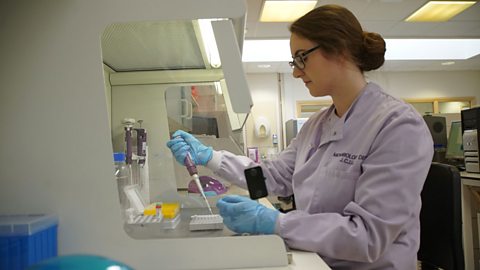
What are your day-to-day tasks?
My main tasks are testing samples and analysing the results. Some of the main tests are HIV testing, Hepatitis B and Hepatitis C testing.
We process the samples, analyse them and report the results. We then communicate with the consultants and senior biomedical scientist staff to get the best care for the patient.
┤¾¤¾┤½├¢ supports the clinicians in deciding which treatment options are suitable for each patient. They wouldn't be able to do this if the sample had not been analysed.

What was your educational career path?
I did Triple Science at school as well as Maths, Geography and Sport. When I went on to college, I did Chemistry, Biology and Geography. Then, when I went to university, I did a Biomedical Science degree.
What soft skills do you use?
Time management is important as our current working hours are 9 to 5 and some tests can take up to five hours to complete.
What would your message to younger students be?
ItÔÇÖs a lot of work, very fast-paced and intense. Some days are really busy but the work is enjoyable. I absolutely love it!

Top tips
Write to hospital and NHS Trusts and see if you can arrange a visit and observe what we do. I came for a placement in the laboratory when I was in college and I absolutely loved it
Consider a sandwich course. A sandwich course is an option some universities offer. It is usually a four-year course, with the extra year spent as a placement in industry. When I was at university, it was optional to do any type of placement. I could have done an industrial placement or an NHS placement. I chose the NHS placement and that has had a huge impact.

What to expect if you want to be a biomedical scientist
- Biomedical scientist average salary: £25,655 to £45,839 per year
- Biomedical scientist typical working hours: 38 to 40 hours per week
What qualifications do you need to be a biomedical scientist?
To become a biomedical scientist you'll need a degree accredited by the Institute of Biomedical Science (IBS) and approved by the Health and Care Professions Council (HCPC). You could get your degree through a university course, a degree apprenticeship, or as an NHS trainee. All of these routes require A-levels, or equivalent qualifications, to apply. Alternatives to A-levels include taking a T-level (England-only), which is equivalent to three A-levels. Check with your course provider which alternative qualifications they accept.
Sources: LMI for All, National Careers Service, .
This information is a guide and is constantly changing. Please check the for the latest information and all the qualifications needed and the for more on T-levels.
For careers advice in all parts of the UK visit: , , and .

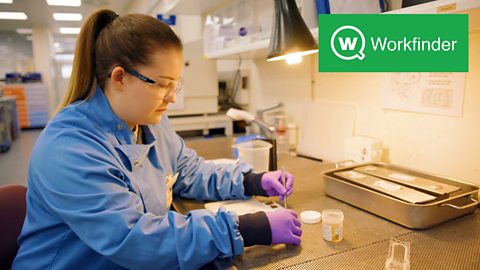
Find work experience placements with Workfinder.
Tips and advice
Help with interviews, writing a CV and all things work experience related.


Kestra: medical student. video
Kestra's a medical student at university.
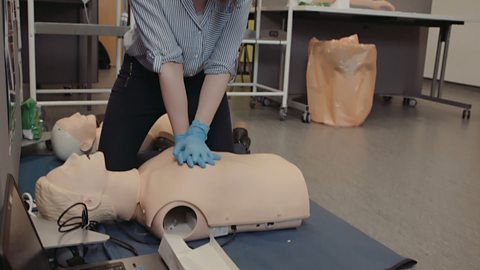
Georgia: science apprentice. video
Georgia works in a lab developing new medicines.
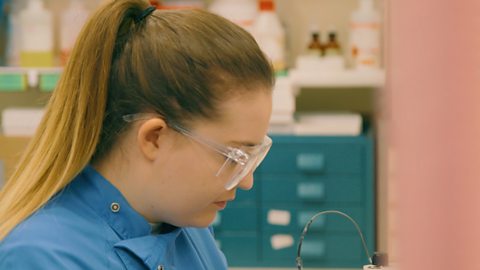
Jaz: research scientist. video
Jaz is a research scientist and PhD student.
